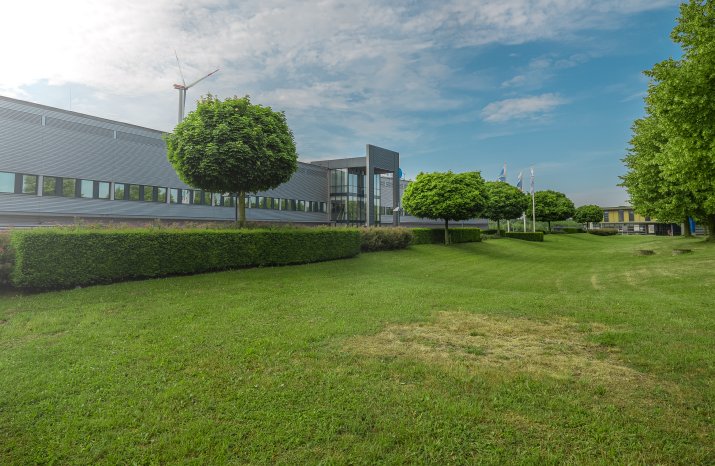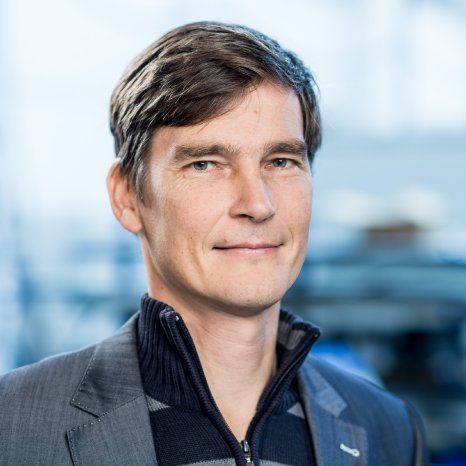The new laboratory in the Avantis industrial park is scheduled to start operations as early as September 2021. It will be located in a building on the Dutch-German border, the latter running directly through the test center itself. For the construction and operation of the laboratory, TÜV Rheinland and ConAC are founding a joint venture in which TÜV Rheinland is the majority shareholder. ConAC is a subsidiary of the Aachen-based PEM Group with its main shareholder Professor Achim Kampker.
Dr. Michael Fübi, CEO of TÜV Rheinland AG and member of the Permanent Expert Council for Electromobility of the State Government of North Rhine-Westphalia: “Electromobility is booming, but at the same time still waiting in the wings. Our investment in battery technology, the technology of the future, therefore represents an important contribution to the mobility sector and to North Rhine-Westphalia and beyond as an industrial base. Thanks to the partnership between TÜV Rheinland and the PEM Group, we are now in a position to cover the entire value-added chain for traction batteries in vehicles for the industry: from support during development to comprehensive tests and type approval. We bring our core competence as an international testing service provider for safety and quality of technologies to the table. After all, innovations can only be successful on the market if they are safe and reliable,” says
Prof. Achim Kampker, who holds the Chair of Production Engineering of E-Mobility Components (PEM) at RWTH Aachen University: “In the coming years, there will be considerable demand in Europe for capacity for testing traction batteries. Therefore, this investment comes at just the right time. In addition, technological development in the battery sector will continue to progress dynamically: Performance, range, durability and service life, costs, material usage and recyclability are important aspects in this context. We will help shape all these developments here at the Aachen-Heerlen Technology Hub. We will bring our network and our many years of experience to the table”.
Achim Kampker is one of the leading experts in his field worldwide and was already co-founder of PEM Motion in 2014. Prof. Kampker is also a member of the Permanent Expert Council for Electromobility of the State Government of North Rhine-Westphalia and furthermore part of the research consortium for the Battery Research Factory in Münster, which is funded by the Federal Ministry of Education and Research with up to 500 million Euros.
Highly dynamic market
A few facts already show the highly dynamic nature of the battery testing market: in 2019, the number of new registrations of all-electric vehicles in Germany was 63,000, and from January to October alone, the figure was over 98,000. Within the EU, the number of new registrations of all-electric vehicles and plug-in hybrids almost doubled between 2019 and 2020. And the trend is continuing at an ever faster pace. Accordingly, the demand for testing capacities for batteries will continue to increase significantly over the next five years.
Safety and quality: tests according to international requirements
It is planned that the experts in the new test center will be able to subject batteries weighing up to around 800 kilograms to all standard tests. By way of comparison, most conventional vehicle batteries currently weigh between 300 and 600 kilograms. Moreover, it will also be possible for manufacturers to carry out validation tests during the development process.
The laboratory's range of services includes the respective tests based on mandatory specifications for the type approval of batteries such as ECE R100 for the testing and approval of lithium-ion batteries or UN 38.3 for the transport of traction batteries. Further voluntary tests based on manufacturer specifications for additional quality assurance are another option, for example based on test specification LV 124 for high-voltage batteries.
The laboratory's technical features include large climate chambers for simulating extreme temperature fluctuations and stresses (-40 to +90 degrees Celsius) and humidity of 10 to 95 percent, a salt corrosion chamber, a test stand for splash water and a test stand for simulating vibrations and shocks. In addition, the laboratory has equipment for simulating service life and durability, including battery loading and unloading, and a dedicated bunker facility for drop tests, nail penetration, over-charge and deep discharge, pressure, crushing and fire exposure. The goal is to be capable of testing all current safety standards comprehensively. Initially, the focus will be on the rapidly growing test market for vehicle traction batteries, but in the future, the range of tests will be extended to further storage applications.
Partners TÜV Rheinland and PEM Group with broad experience
TÜV Rheinland is globally operating in the testing of storage systems and batteries for almost all applications. The same applies to the international competence team for the homologation of motor vehicles and vehicle components to obtain road approval for new types in all leading markets. The test laboratory in Heerlen-Aachen will therefore be integrated into the “Engineering and Homologation” business field in the Mobility business stream of TÜV Rheinland. In 2019, this business stream achieved a turnover of almost 560 million euros.
The PEM Group, co-founded in 2014 by Prof. Kampker as an offshoot of RWTH Aachen University, offers customer-specific consulting and engineering services. Its customers in the automotive and mobility industry include OEMs, suppliers and start-ups. The PEM Group currently has about 100 employees. In addition to locations in Germany and the Netherlands, there are further locations in the USA, Mexico and China.
Right from the start, the joint venture for the operation of the new test center will therefore have highly qualified experts with a broad and long-standing technical and industry expertise.
Youtube-Video about establishing the test center for traction batteries



